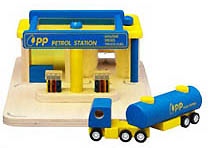Fuel protesters to launch road blockades -- in the UK
PROTESTERS are planning two days of disruption
this week to blockade roads, oil refineries and petrol depots unless the
government gives in to their demand to cut fuel duty.

Folks who prate that “spoiled Americans” should get used to European gasoline prices still think it’s $3-4/gallon the other side of the pond. Gasoline in the UK hit $7/gallon before Katrina.
Prices have risen to record levels of more than £1 a litre in some parts of the country. About three-quarters of the price of a litre consists of fuel duty and Vat.
The Fuel Lobby, the group which organised the protests that brought Britain to a near-standstill in autumn 2000, says it plans large-scale protests across the country. It wants to prevent supplies reaching petrol stations from 6am on Wednesday.
-------------
Gordon Brown, the chancellor, yesterday played down prospects of government moves to cut the price of fuel for motorists, instead telling a meeting of European Union finance ministers in Manchester that high oil prices required worldwide solutions.
“We urge oil-producing countries and companies and consumers to recognise their common interest in ensuring sufficient supplies of oil,” said Brown.
------------
Andrew Spence, a farmer from County Durham and one of the founders of the Fuel Lobby, said the EU meeting should have agreed fuel tax cuts to ease the burden on motorists.
He added that lorry drivers in France and Spain had told him they would hold protests in sympathy with actions in Britain.
Spence said cuts in fuel duty would make “common sense” by producing immediate reductions in the cost at pumps.
The last time there were boycotts, rolling demonstrations and barricades by farmers and truck drivers was 2000. These are tactics that certainly won’t be supported by all motorists. The folks moving to measures this extreme are being put out of business by the cost of fuel.
Last week ministers discussed a response to threatened shortages caused by blockades. A document, Downstream Oil Resilience, suggested that motorists could be restricted in the amount of fuel they could buy while other measures, enshrined in the Energy Act of 1976, could include the setting aside of designated filling stations for the exclusive use of priority users.
British bureaucratese ain’t a whole lot different from Rovespeak. The preceding paragraph means -- rationing!
Posted: Sun - September 11, 2005 at 02:28 PM